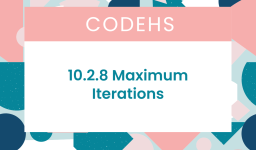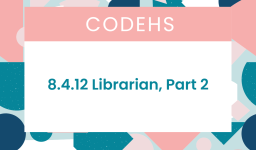Which of the following can pose challenges for readers who are English Learners (ELs)? Select all that apply.
A. compared to native English speakers, ELs have fewer English words in their phonological lexicons.
B. ELs may encounter passages that do not align well with their culture and background knowledge.
C. ELs often have deficits in decoding skills as well as having a limited vocabulary.
D. When they read, ELs must perform two tasks at once: deciphering words and translating content between English and their first language.
This question is a part of the LETRS Unit 1 Session 1-8 Check For Understanding answers.
Answer
Compared to native English speakers, ELs have fewer English words in their phonological lexicons.
ELs may encounter passages that do not align well with their culture and background knowledge.
When they read, ELs must perform two tasks at once: deciphering words and translating content between English and their first language.
- Compared to native English speakers, ELs have fewer English words in their phonological lexicons.
Explanation: The phonological lexicon is a mental storage of phonological information about words and is instrumental in reading fluency and comprehension. Native speakers, especially those exposed to a rich language environment from a young age, have a vast reservoir of words they recognize quickly and automatically. ELs, on the other hand, have not had the same exposure and, thus, may struggle with many words that native speakers take for granted. This can slow their reading speed and make comprehension more challenging.
Source: Perfetti, C. A., & Hart, L. (2002). The lexical quality hypothesis. Precursors of functional literacy, 11, 67-86. - ELs may encounter passages that do not align well with their culture and background knowledge.
Explanation: Background knowledge plays a significant role in reading comprehension. When readers are familiar with the context, it’s easier for them to make connections and infer meaning. Conversely, ELs may come from diverse cultural backgrounds and might not relate to, or be familiar with, certain cultural references, idioms, or historical events referenced in a text. This can make comprehension more difficult as they’re not just reading the text but also trying to fill in gaps in cultural and contextual knowledge.
Source: Echevarria, J., Vogt, M., & Short, D. J. (2008). Making content comprehensible for English learners: The SIOP model. Pearson. - When they read, ELs must perform two tasks at once: deciphering words and translating content between English and their first language.
Explanation: Native English speakers often only have to focus on deciphering words, their meanings, and the overall content. In contrast, ELs, especially those in the early stages of English proficiency, might find themselves translating words or phrases back to their native language to understand the content. This process requires more cognitive load, slowing down the reading process and potentially leading to misinterpretations if direct translations don’t exist or if the translations are misleading.
Source: Cummins, J. (1979). Cognitive/academic language proficiency, linguistic interdependence, the optimum age question and some other matters. Working Papers on Bilingualism, No. 19, 121-129.
These challenges underscore the importance of tailored educational approaches for ELs. Effective strategies may include expanding their phonological lexicon, providing culturally relevant reading materials, and supporting their bilingual cognitive processes.



